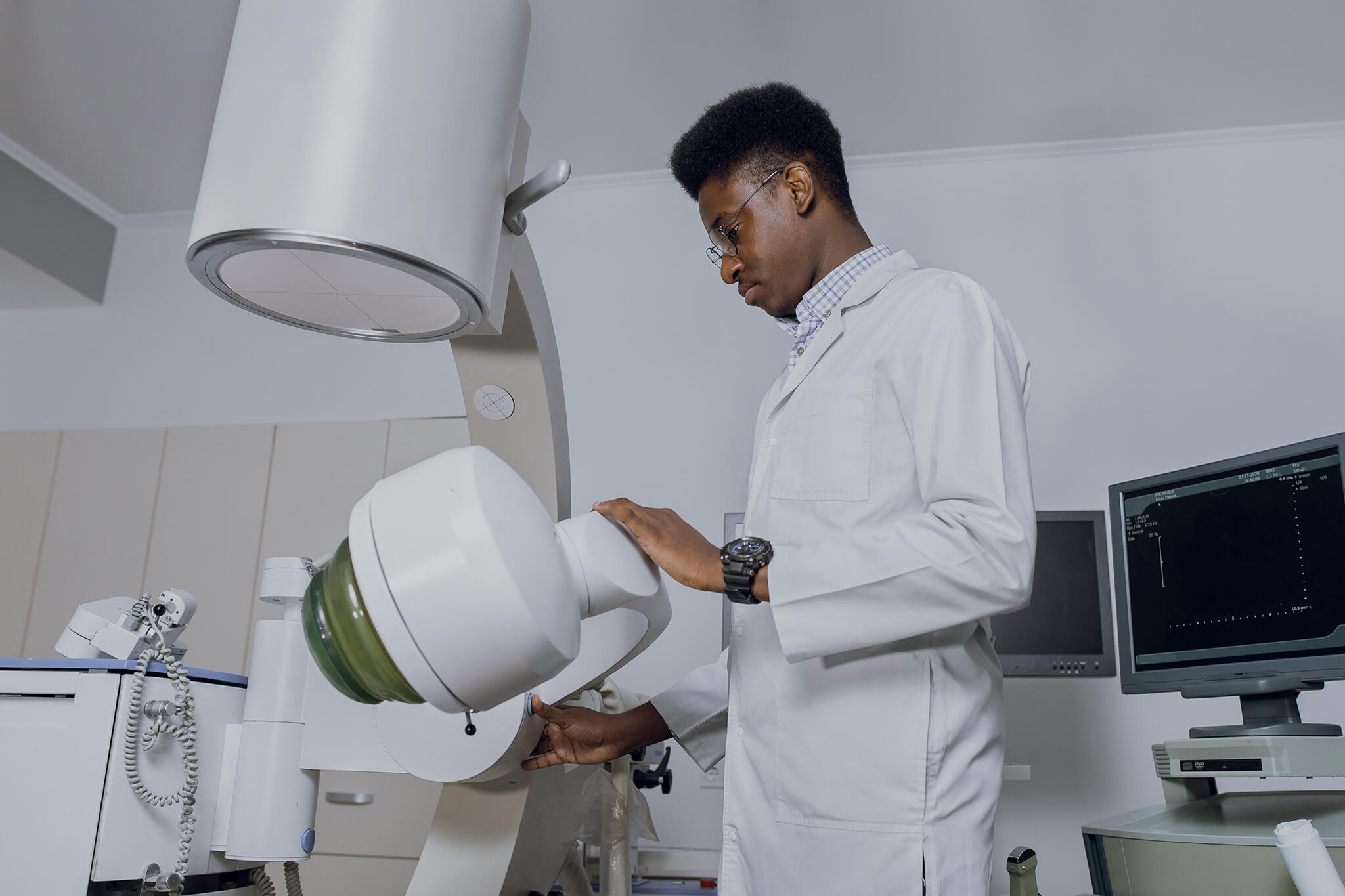Advantages of Medical Lasers vs. Extracorporeal Shock Wave Lithotripsy (ESWL)
Medical lasers have several advantages over ESWL, highlighting how lasers can offer precision, customization, reduced discomfort, a decreased likelihood of follow-up treatments, and effective results for various stone types, among other benefits. Here are 10 ways medical lasers are often superior to ESWL.
1. Precision and targeting
Medical lasers allow the use of precise methods for breaking down kidney stones. They enable healthcare providers to focus on the stone with pinpoint accuracy, minimizing damage to surrounding tissues.
This precision reduces the risk of complications and accelerates the healing process compared to the less targeted nature of ESWL, which uses shock waves to fragment stones.
2. Customization
As you know, each patient and kidney stone is unique. Medical lasers offer a high degree of customization as surgical teams can adjust laser settings for the specific requirements of the case.
This tailored approach increases the chances of successful stone fragmentation while minimizing damage to nearby tissues.
3. Less discomfort
One of the most significant advantages of medical lasers is decreased pain compared to other methods. ESWL often involves sending shock waves through the body, which can be painful and require anesthesia. In contrast, medical laser treatments are less invasive and typically cause less discomfort during and after the procedure.
4. Reduced retreatments
Successful stone treatment often hinges on whether the entire stone is adequately fragmented and removed. Medical lasers have a higher success rate in achieving complete stone disintegration during the initial procedure, reducing the need for retreatments. ESWL may require multiple sessions to treat larger or stubborn stones effectively.
5. Effective on different types of kidney stones
Medical lasers are versatile and can effectively treat many kidney stone types, including calcium oxalate, calcium phosphate, struvite, and uric acid stones. This versatility makes them a preferred choice when dealing with various stone compositions. In contrast, ESWL may be less effective for certain types of kidney stones.
6. Minimal anesthesia
A huge advantage of medical laser treatment is they often require less anesthesia. With ESWL procedures, the shock waves can be quite uncomfortable, potentially requiring the patient to take medicine for the pain. Less anesthesia can mean fewer potential side effects and a quicker recovery after the procedure.
7. Less risk of hematoma
ESWL can cause complications such as hematoma (bruising) due to the forceful impact of shockwaves on the skin and other tissues. In comparison, medical lasers are gentler, minimizing the risk of hematoma formation and associated side effects.
8. Lower imaging requirements
While ESWL often requires frequent imaging to monitor the stone fragmentation progress, medical lasers rely on real-time visualization, reducing the need for extensive imaging. This saves time and resources and lowers patients’ exposure to radiation.
9. Shorter recovery time
Patients undergoing medical laser treatments typically experience shorter recovery times than ESWL. The less invasive nature of medical laser procedures does less damage to the body, enabling patients to resume normal activities sooner.
10. Suitable for complex cases
Medical lasers are ideal for complex cases, such as large stones, stones in challenging locations, or patients with anatomical anomalies. The precision and adaptability of lasers make them a valuable tool for tackling difficult kidney stones.
IML leading the way in world-class medical devices
In the ever-evolving landscape of medical technology, the advantages of medical lasers over ESWL for kidney stone treatment are becoming increasingly evident. The precision, customization, reduced discomfort, and effectiveness of laser treatment for various stone types make them a preferred choice for healthcare professionals and patients.
Additionally, medical lasers offer advantages such as fewer retreatments, minimal anesthesia, reduced risk of hematoma, and shorter recovery times, making them a versatile and efficient option for treating kidney stones, including more complex cases.
Contact IML to learn more about the cutting-edge advancements in medical laser technology and how it’s revolutionizing kidney stone treatment.
